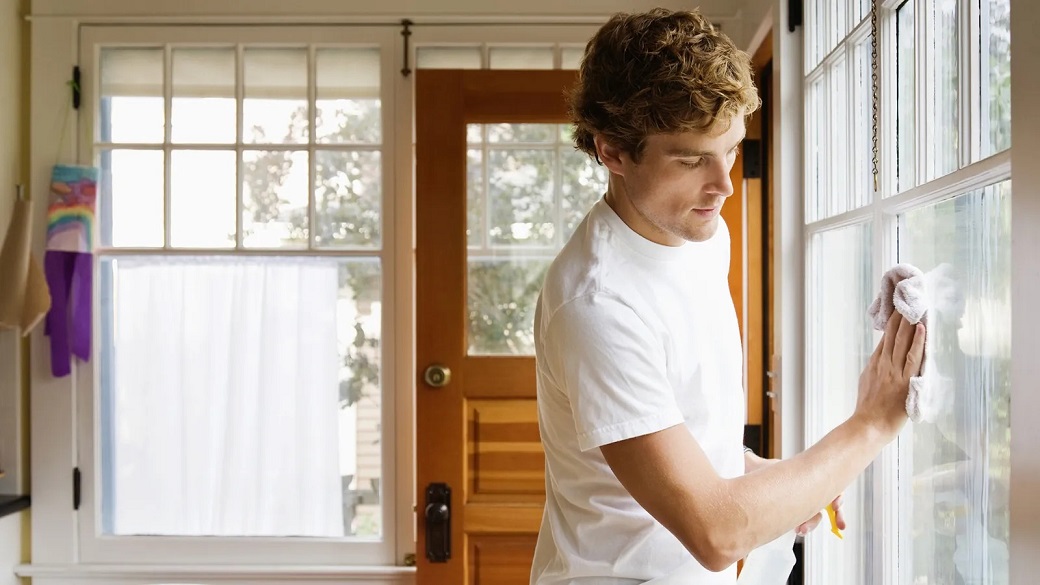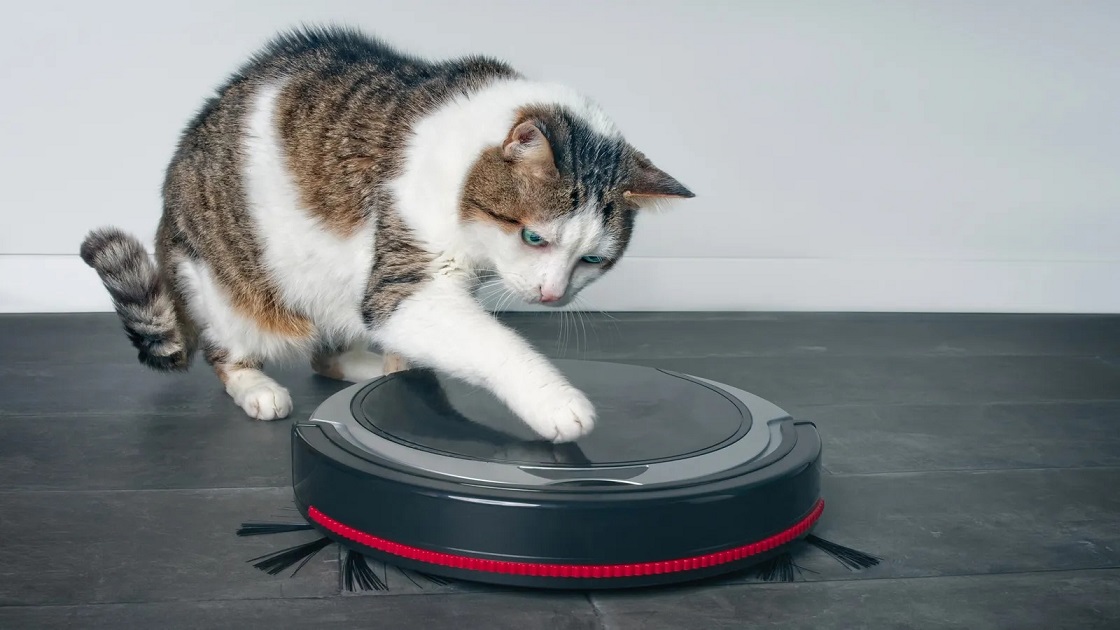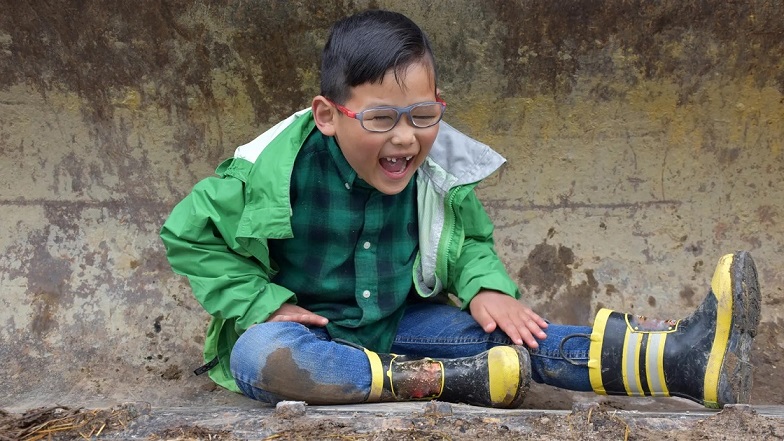 为什么大扫除不利于你的健康?
为什么大扫除不利于你的健康?
Why spring-cleaning won''t benefit your health
译文简介
随着天气转暖,我们许多人进行大扫除。但有没有过分干净的房子?脏一点点是否对我们有好处?
正文翻译

Many of us spring clean as the weather warms up. But is there such a thing as house that''s too clean? Could a little bit of dirt be good for us?
随着天气转暖,我们许多人进行大扫除。但有没有过分干净的房子?脏一点点是否对我们有好处?
With spring around the corner in the Northern Hemisphere, many of us are ready to open the windows, get out the cleaning products and remove all the dust, grime and dirt in our homes.
随着北半球的春天即将来临,我们许多人准备推开窗户,拿出清洁用品,把我们家中所有的灰尘和污垢清除干净。
But how important is having a clean home for our health? Does deep cleaning help prevent infection and protect us from diseases? Experts say we should be careful not to conflate cleanliness with good hygiene.
但是,拥有一个干净的家对我们的健康有多重要?深度清洁有利于预防感染和疾病吗?专家表示我们应该谨慎,不要将清洁与卫生混为一谈。
The Covid-19 pandemic increased household cleaning as people tried to keep the virus at bay by disinfecting every inch of their home. This was exacerbated by the World Health Organization warning early on that the virus could spread through contaminated surfaces, known as fomites. Later research concluded that surfaces presented a low risk of disease transmission.
新冠疫情增加了家居清洁,因为人们试图彻底给家里消毒来抑制病毒。世界卫生组织早期警告称,新冠病毒可能通过污染物表面传播,进一步助长了家居清洁。后来有研究得出结论,物体表面传播疾病的风险较低。
Sally Bloomfield, chairperson of the International Scientific Forum on Home Hygiene and an honorary professor at London School of Hygiene and Tropical Medicine worries the pandemic has led many people to pick up unhelpful cleaning habits. These can include such things as obsessively scrubbing their floors, instead of focusing on good hygiene practices which help prevent the spread of disease.
萨利·布鲁姆菲尔德是国际居家卫生科学论坛主席,伦敦卫生与热带医学院的荣誉教授,她担心疫情使许多人养成不良的清洁习惯。其中包括过分擦洗地板,而不重视有助于预防疾病传播的良好卫生习惯。
"People have an obsession with cleanliness as a means to protect themselves against germs," says Bloomfield. "It's somewhere in our DNA that we associate cleanliness with health… We've evolved to have a disgust reflex and avoid things that are nasty or smelly."
“人们痴迷于清洁,以此作为保护自己免受细菌侵害的手段”,布鲁姆菲尔德说道。“清洁与健康的联系存在于我们的DNA中。我们进化出了厌恶条件反射,远离脏臭的东西”。
But cleanliness and hygiene are not the same thing, she says.
但是,清洁与卫生不是一回事,她说道。

Current health advice suggests people should clean their hands after handling pets, for instance
目前的健康建议是人们应该勤洗手,例如摆弄完宠物之后。
"Cleanliness is about achieving the appearance of [an area] looking clean, through vacuuming or wiping it," she says. "But hygiene is about protecting yourself from harmful microbes."
“清洁是指通过吸尘器或擦拭的手段使(某块区域)外观看起来很干净”,她说道。“但卫生是指保护自己免受有害微生物的侵害”。
These include pathogens such as norovirus, flu, Covid-19 and salmonella, says Bloomfield.
其中包括病原体,例如:诺如病毒、新冠病毒、沙门氏菌,布鲁姆菲尔德说道。
"Hygiene is a set of actions, not a state, which you carry out when it's necessary, rather than at a prescribed time," says Bloomfield. "It's about intervening at key moments."
“卫生是一系列行动,而不是状态,你应该在必要的时候而非固定的时间采取行动”,布鲁姆菲尔德说道。“在关键时刻进行干预”。
We should all practice "targeted hygiene" in our daily lives and recognise when harmful microbes are likely to spread, says Bloomfield. For example, when we're handling raw food, using the toilet, touching pets, blowing our nose or disposing of rubbish.
我们在日常生活中都应该养成“有针对性的卫生”习惯,了解有害微生物在什么情况下可能传播,布鲁姆菲尔德说道。例如:处理生鲜、使用马桶、接触宠物、擤鼻涕、处理垃圾。
A national survey carried out by the Royal Society for Public Health (RSPH) in the UK revealed that many people are confused about the difference between hygiene and cleanliness. Many of the respondents said that being hygienic involves removing dirt. More than a third (36%) said that dirt was always of usually harmful and 61% said that touching a child's hands after they had been playing outside was likely to spread harmful microbes.
英国皇家公共卫生协会开展的全国普查显示,许多人弄不明白卫生与清洁之间的差异。许多受访者表示,讲卫生就是清除污垢。三分之一以上(36%)受访者说污垢都是有害的,61%的受访者说儿童在户外玩耍后,接触他们的手可能传播有害微生物。
But the RSPH notes that the main sources of pathogens are not typically places which are considered "dirty", but rather contaminated food, domestic animals and infected people.
但英国皇家公共卫生协会指出,病原体的主要来源不是通常认为的“肮脏”之地,而是受污染的食品、家畜、感染者。
Research actually shows that getting mucky can provide many important health benefits. Studies show that children who grow up on farms, for example, suffer less from asthma and allergies and are less likely to develop autoimmune conditions such as Crohn's disease due to their early-life exposure to a more diverse range of microorganisms which helped regulate their immune system.
研究表明,脏兮兮能够提供许多重要的健康益处。例如在农场长大的孩子较少患哮喘和过敏,自身免疫性疾病的发病率较低,例如克罗恩病,因为他们早年接触过更多种类的微生物,有助于调节他们的免疫系统。
The belief that cleanliness and hygiene are the same has persisted since the late 1980s, when epidemiologist David Strachan postulated the hygiene hypothesis. It argued early childhood exposure to germs and infections helps develop children's immune systems and protects against allergies.
自20世纪80年代末以来,人们一直将清洁与卫生相提并论,当时的流行病学家戴维·斯特拉汗提出卫生假说:儿童在早期阶段接触细菌和传染病有利于免疫系统的发育和预防过敏。
The rise in childhood allergies and asthma in the late 20th Century was lixed to children's reduced exposure to microbes through declining family sizes, limited interaction with animals and higher standards of cleanliness, according to Strachan.
斯特拉汗表示,20世纪末儿童过敏和哮喘的发病率上升,这与儿童减少接触微生物有关,原因包括家庭规模缩小、与动物互动受限、清洁标准提高。
But scientists now argue that there is no evidence showing that cleanliness is lixed to the development of allergies.
但科学家现在认为,没有证据表明清洁与过敏有关联。
Graham Rook, emeritus professor of medical microbiology at University College London (UCL), says the hygiene hypothesis should instead be refrxd as the "old friends hypothesis." He argues that exposure to "old friends", non-infectious organisms, which have been around for much of our evolutionary history, is actually what trains the immune system to not overreact to harmless microbes, rather than childhood infections or how clean your home is growing up.
伦敦大学学院医学微生物学荣誉教授格雷厄姆·鲁克表示,卫生假说应该被重新定义为“老朋友假说”。他认为人类大部分进化史都伴随着非传染性微生物,其实训练免疫系统不对无害微生物产生过激反应的是接触这些“老朋友”,而不是儿童传染病或你的成长环境有多干净。

Since the 1980s, some scientists have believed playing in dirtier environments helps create a healthy immune system in children
自20世纪80年代以来,有科学家认为儿童在较脏的环境下玩耍有助于免疫系统的健康发育。
We're born with a fully formed immune system that needs programming," says Bloomfield. "The programming is done by the 'old friends'. [They are] teaching the immune system to not react to things like pollen and food allergens, which are perfectly harmless."
“我们与生俱来完全成型的免疫系统需要程序编制”,布鲁姆菲尔德说道。“程序编制由‘老朋友’来完成,它们训练免疫系统不对花粉和食物过敏原产生反应,它们完全是无害的”。
A child's susceptibility to developing allergies therefore does not have anything to do with cleanliness, but rather with their exposure to different types of microorganisms via their gut, their skin and the air they breathe, according to scientists. (Read more about how we can prevent food allergies through early exposure.)
因此科学家认为,儿童容易过敏与清洁没有关联,而与他们通过肠道、皮肤、空气接触到的各种微生物有关。(了解更多关于我们如何通过早期暴露预防食物过敏)
In a 2021 study, Rook and Bloomfield concluded that we are not too clean for our own good.
在2021年一项研究中,鲁克和布鲁姆菲尔德得出结论称,太干净对我们没好处。
Children receive all the microbial inputs they need to develop a healthy immune system through vaccines, their natural environment and the beneficial microbiota they derive from their mothers during childbirth, they said.
儿童的免疫系统的健康发育需要微生物,它们来自疫苗、自然环境、以及分娩过程中来自母亲的有益微生物群,他们说道。
"We definitely do need to encounter the microbiota from our mothers, and from the natural environment, and a failure to do so certainly contributes to immunoregulatory disorders such as allergies because these organisms set up the mechanisms that regulate the immune system," says Rook. But cleaning the home "does not necessarily reduce the child's exposure to mother or to nature".
“我们绝对需要接触来自母亲和自然环境的微生物群,否则肯定会导致过敏这样的免疫失调,因为这些生物体建立了调节免疫系统的机制”,鲁克说道。但家居清洁“不一定减少儿童与母亲或自然环境的接触”。
"Targeted hygiene practices at key risk moments and sites can maximise protection against infection while minimising any impact on essential microbial exposures," the study states.
这项研究指出:“在关键的风险时刻和场所养成有针对性的卫生习惯,这既能最大限度地预防感染,又能尽量不影响与必要微生物的接触”。
"You cannot keep your home hygienic. If you wanted to do that, you would have to put it in a sterile box," says Bloomfield. "But if you intervene at key moments, you will deal with most of the risks."
“你无法保持家居卫生,你只有把家放进无菌箱子里才能做到这一点”,布鲁姆菲尔德说道。“但如果你在关键时刻出手干预,你将应对大多数风险”。
评论翻译
#
很赞 ( 1 )
收藏